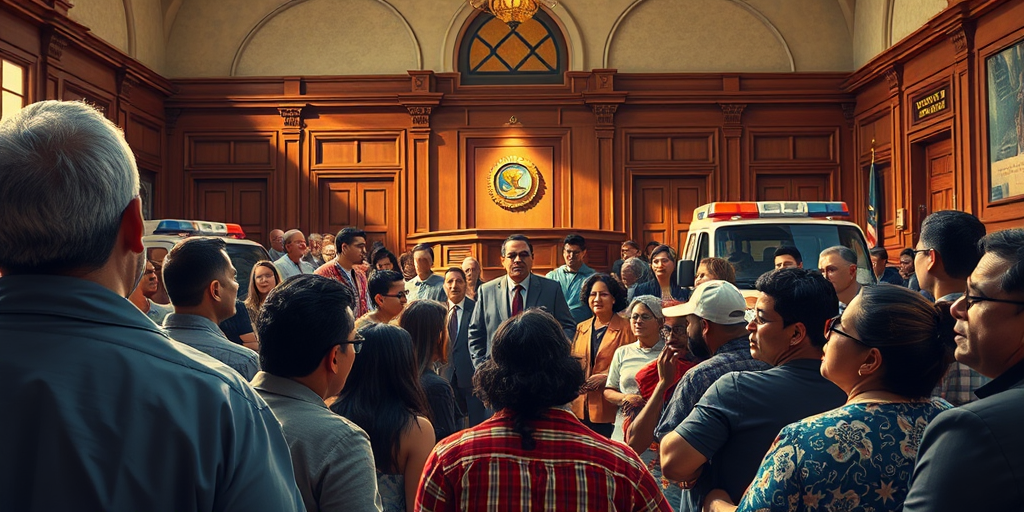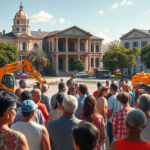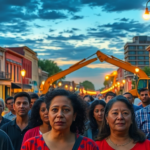# RGV Residents Face 20-Year Sentences for COVID-19 Loan Fraud Scheme
Five residents from the Rio Grande Valley of South Texas are currently facing severe legal repercussions following their indictment on charges of wire fraud. This indictment is linked to a COVID-19 relief loan fraud scheme involving the Paycheck Protection Program (PPP) and Economic Injury Disaster Loan (EIDL) programs. The charges mark a significant local development that underscores challenges in managing federal relief funds and their outcomes for Valley residents.
## The Fraudulent Scheme: Key Details
According to the U.S. Attorney’s office, the defendants – Sandra Pope Solis, Lesley Chavez, Rolando Santiago Benitez, Bernardo Gomez Jr., and Edgar De La Garza – were involved in a systematic scheme. Between June 2020 and November 2021, they allegedly submitted fraudulent loan applications, leading to a collective loss of $685,800 to the Small Business Administration (SBA), which managed these relief programs.
The indictment reveals that the accused altered or fabricated tax documents and business records to inflate loan amounts, securing funds meant to alleviate the economic distress caused by the pandemic. These funds, intended to support small businesses in maintaining payroll and other essential operations, were allegedly diverted for personal use by the defendants.
## Local Impact and Community Response
The Rio Grande Valley, a region deeply affected by the COVID-19 pandemic, sees the outcome of this case as both a cautionary tale and a call for vigilance. As local communities worked to rebuild and recover, programs like the PPP and EIDL were instrumental in providing essential financial support, making this breach of trust feel all the more significant.
Commissioner Armando Gonzalez of Cameron County emphasized the communal fallout: “Programs like the PPP were lifelines for our businesses and families. The misuse and abuse of these for personal gain undermines the integrity and necessity of such federal relief efforts, particularly in hard-hit regions like ours.”
For Valley residents who depended on these loans for survival and continuity, the alleged actions of the indicted individuals are drawing widespread condemnation and scrutiny. This incident further amplifies community interest in safeguarding financial aid processes and ensuring they serve their intended purpose.
## Historical Context and Broader Issues
The fraud charges against these RGV residents come against a backdrop of federal relief programs being critically scrutinized nationwide for similar abuses. During the pandemic, the rapid distribution of funds, while crucial, often lacked sufficient oversight, leading to exploitation and fraud in several regions.
Edward Moreno, a policy analyst focused on economic development in South Texas, noted, “The flaws in oversight mechanisms exposed during the pandemic should act as lessons. It’s vital that resources distributed in emergent scenarios are coupled with robust checks to prevent abuses and ensure equitable distribution.”
This case continues a troubling trend of COVID-19 relief fund misuse that federal authorities are determined to address, setting precedents for stricter monitoring in future economic aid disbursements.
## Future Implications for RGV and Monitoring Efforts
As these five individuals face trial, the community watches closely, understanding that such high-profile fraud cases could influence future federal assistance programs. The potential legal consequences – up to 20 years in prison and hefty fines if convicted – emphasize the gravity with which authorities are treating these violations and may shape future policy reforms.
In response, local organizations and agencies are renewing efforts to educate about legitimate application processes and advocating for enhanced transparency from the government during similar programs. Community awareness initiatives seek to prevent future abuses and protect the Valley’s economic interests.
## Balancing Protection with Support
Despite this unsettling event, local leaders and advocates remain firmly supportive of relief initiatives, emphasizing the collective benefits such programs provide when executed correctly. Awareness and proactive engagement, they argue, are pivotal in balancing vigilance with support for those in genuine need.
Furthermore, Valley residents are encouraged to remain informed and report any suspicions or inconsistencies in relief applications or disbursements. The U.S. Attorney’s office and other federal entities continue to offer resources for fraud prevention and are committed to working with local communities to restore trust in assistance programs.
This case serves as a critical reminder of the ongoing challenges in managing large-scale relief efforts and the necessity for rigorous accountability measures. As the Rio Grande Valley continues to recover and grow, focus remains on upholding integrity and ensuring support reaches the right hands.
For updates and resources related to this case and future relief efforts, community members can connect with ValleyCentral online and through social media, ensuring they remain actively informed and engaged.







